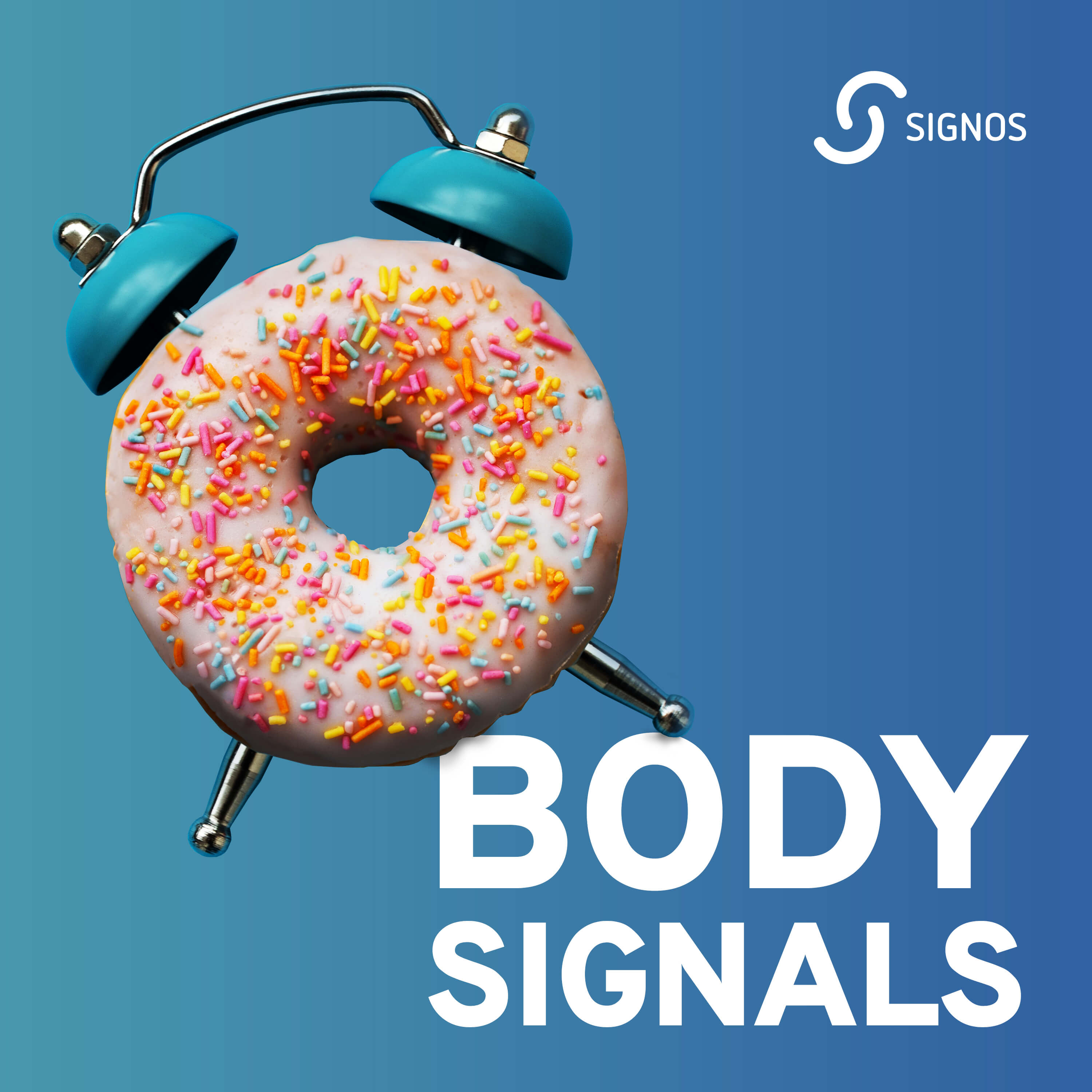Stress is more than just a mental and emotional burden; it can impact your physical health and even affect your menstrual cycle. Whether you're dealing with work pressure, a personal challenge, or any other stressful situation, it's common to notice changes in your period.
In this article we’ll learn how stress can affect your period, the connection between your stress levels and hormones, and provide practical tips to manage stress to help maintain a regular cycle and optimal physical and emotional health.
<p class="pro-tip"><strong>Also Read: </strong><a href=stress-supplements>Supplements for Stress Relief, According to Dietitians</a>.</p>
Stress and Periods: How Do They Relate?

It may not be a surprise that your period can affect your mental and emotional health, especially if you've ever experienced Premenstrual Syndrome (PMS) symptoms of irritability or mood swings in the days leading to your period. But did you know that your stress levels can also impact your menstrual cycle, causing you to be late or early, miss your period, or experience unusual symptoms? To understand how feelings of overwhelm and anxiety can disrupt your menstrual cycle, let’s first understand how your cycle works under normal, non-stressful conditions.
The menstrual cycle is directed by several hormones that fluctuate through a cycle lasting an average of 28 days but can be anywhere from 21 to 35 days (give or take). Day one of your menstrual cycle starts on the first day of your period, indicating the beginning of your follicular phase as your body sheds the uterine lining. This is started as your brain releases gonadotrophin-releasing hormone (GnRH), which then promotes the release of follicle-stimulating hormone (FSH).
As select follicles in your ovaries begin to mature and secrete estrogen, your brain secretes Luteinizing Hormone (LH), which leads to the release of a mature egg from the ovaries, kicking off ovulation. After ovulation, you have about a 14-day window where your body begins to prepare for a fertilized egg to implant into the uterus, increasing the production of the hormone progesterone, which then leads to the shedding of the uterine lining if no fertilized egg is implanted there. This starts the cycle over again as your period begins.
When you're stressed, your body releases high levels of cortisol and adrenaline, stress hormones that are part of the "fight or flight" response. High cortisol levels can interfere with the other hormones released by your brain during the menstrual cycle, leading to irregularities such as delayed ovulation, anovulation (where no egg is released), or even missed periods.
While short-term stress may have a small impact on your cycle length or pattern, chronic stress can lead to imbalances in key hormones like estrogen and progesterone, resulting in heavier, more painful periods or lighter periods.1 Every person’s menstrual cycle reacts differently to stress, and understanding how your body reacts is key to managing your stress and overall well-being.
6 Ways Stress Can Affect Your Period
Cortisol, the hormone released when your body is under stress, can wreak havoc on your body in many ways and, for females, can disrupt the normal functioning of your menstrual cycle.2 Here are several ways stress can impact your period.
- You May Miss Your Period: High levels of stress can lead to amenorrhea, where your period stops altogether. This may lead to one skipped period or several, depending on the intensity and length of stress.
- Your Cycle May Be Unpredictable: Stress can cause irregular menstrual cycles. You might experience shorter or longer cycles than usual, making it hard to predict when your next period will arrive. This can leave you waiting for a late period or surprised with spotting or an early start.
- You May Experience Spotting or an Unusual Flow: Instead of a regular period, you might notice spotting or a heavier or lighter flow. Stress can cause hormonal imbalances that result in lighter or heavier bleeding at unexpected times.
- Your Period May Be More Painful: Stress can exacerbate menstrual cramps and other period-related pain, making women who experience high stress twice as likely to have painful periods than those with low stress.3 The body's stress response can increase inflammation and sensitivity to pain, making your period more uncomfortable than usual.
- Your Period Could Come Early: Sometimes, stress can trigger an early period. The hormonal shifts caused by stress can speed up the menstrual cycle, leading to menstruation earlier than expected.4
- You May Have Increased PMS: PMS symptoms like bloating, mood swings, and irritability can become more intense when you're stressed. The body's heightened stress response can amplify these symptoms, making the days leading up to your period more challenging.
How Long Can Stress Impact Your Period?

The length of time that stress can affect your period depends on the individual person and the length and intensity of the stress. Some people may notice just small disruptions, while others may completely miss their period or have very obvious symptoms that last several months or more.
The type of stress may also play a role. Short bursts of anxiety or one life event that increases stress for a short period but then resolves will affect your period for less time than chronic stress.
How to Know If Stress Is Affecting Your Menstrual Cycle
There are a lot of things that can affect your menstrual cycle, including stress, nutrition, weight loss or gain, menopause, perimenopause, thyroid conditions, polycystic ovary syndrome, and other pelvic conditions. Medications like blood thinners, non-steroidal anti-inflammatory drugs (NSAIDs), and hormonal therapies may also impact your period.
If you’re experiencing irregular cycles, painful period symptoms, or abnormal weight gain, it’s important to consult with your OB/GYN or primary healthcare provider. Stress may be the cause, but it could also be something else. A gynecologist can help you determine the root cause of your irregular cycles and devise a plan to best address it.
How to Manage the Impact of Stress on Your Cycle
If stress levels are the culprit of an irregular period, managing your stress may help you bring balance back to your cycle. These healthy habits and relaxation techniques will not only benefit your menstrual cycle but can also have other health benefits, as chronic stress is hard on every system of the body.
- Meditate: Regular meditation can help reduce stress levels and promote relaxation. As few as five minutes a day can make a difference in how your body handles stress.5
- Avoid Smoking: Smoking can exacerbate stress and negatively affect your menstrual health. Take steps to stop smoking to reduce inflammation and stress on your body and improve your cycle.
- Reduce Your Alcohol Intake: Limiting the amount of alcohol you consume can help stabilize your hormones and make it easier to manage stress.
- Improve Your Sleep Schedule: Consistent, quality sleep is crucial for managing stress and balancing hormone levels. Aim for 7 to 9 hours of sleep each night and maintain a regular sleep schedule.
- Try Breathing Exercises: Deep breathing exercises can help calm your mind and reduce stress levels.6 Practice techniques like diaphragmatic breathing or coherent breathing (breathing in for 5 seconds, then out for 5 seconds and repeating) are just a few to try.7, 8
Managing Stress Effectively: 8 Best Tips
Don’t let managing your stress feel like another thing you must add to your plate. By prioritizing your mental and physical health, you’ll improve your quality of life, including your menstrual cycle. These healthy habits and stress-reduction techniques can help you feel happier less stressed, and improve your health today and well into the future.
- Exercise Consistently: Regular physical activity is one of the best ways to reduce stress effects and can make you more resilient to stressful situations in the future.9 Aim for at least 30 minutes of exercise most days of the week to boost your mood and energy levels.
- Eat a Balanced Diet: Eating a balanced diet rich in whole foods, including fruits, vegetables, lean proteins, and whole grains, can help stabilize mood and energy levels.
- Spend Time Connecting With Loved Ones: Connect with friends and family members who make you feel supported and understood.
- Prioritize Rest and Sleep: Getting enough sleep each night helps your body recover from daily stressors and maintain a healthy hormonal balance.
- Make Time for Activities You Love: Doing things you love can significantly reduce stress and improve your mood.
- Cut down (Or Eliminate) Your Caffeine Intake: High caffeine intake can increase anxiety and interfere with sleep.10 Try to limit your caffeine intake and avoid it in the afternoons to help manage stress more effectively.
- Talk to Someone: Talking to a mental health professional can help you feel supported and develop individual strategies for managing the stress in your life.
- Prioritize Your Mental Health: Regularly check in with yourself and take proactive steps to manage your mental health. Take the time for self-care routines, mindfulness, exercise, and talking to a professional when needed.
Learn More About How to Improve Blood Sugar Health With Signos’ Expert Advice
Stress can negatively impact your menstrual cycle and increase your risk for other medical conditions like heart disease, high blood pressure, digestive disorders, sleep problems, and weight gain. Stress management is an important part of your health routine, eating a balanced diet and exercising. Signos can help improve your health by learning how stress affects your blood sugar and how your glucose impacts your energy, weight, and health. Learn more and find out if Signos is a good fit for you by taking a quick quiz.
<p class="pro-tip"><strong>Learn More: </strong><a href=can-stress-cause-weight-loss>Can Stress Cause Weight Loss? Causes & How to Manage It</a>.</p>
- Item 1
- Item 2
- item 3
Topics discussed in this article:
References
- Vigil, P., Meléndez, J., Soto, H., Petkovic, G., Bernal, Y. A., & Molina, S. (2022). Chronic Stress and Ovulatory Dysfunction: Implications in Times of COVID-19. Frontiers in global women's health, 3, 866104. Retrieved from https://www.ncbi.nlm.nih.gov/pmc/articles/PMC9168655/
- Mayo Clinic Staff. (2023). Stress management. Mayo Clinic. Retrieved from https://www.mayoclinic.org/healthy-lifestyle/stress-management/in-depth/stress/art-20046037
- Wang, L., Wang, X., Wang, W., Chen, C., Ronnennberg, A. G., Guang, W., Huang, A., Fang, Z., Zang, T., Wang, L., & Xu, X. (2004). Stress and dysmenorrhoea: a population based prospective study. Occupational and environmental medicine, 61(12), 1021–1026. Retrieved from https://pubmed.ncbi.nlm.nih.gov/15550609/
- Barsom, S. H., Mansfield, P. K., Koch, P. B., Gierach, G., & West, S. G. (2004). Association between psychological stress and menstrual cycle characteristics in perimenopausal women. Women's health issues : official publication of the Jacobs Institute of Women's Health, 14(6), 235–241. Retrieved from https://pubmed.ncbi.nlm.nih.gov/15589774/
- Suyi, Y., Meredith, P., & Khan, A. (2017). Effects of five-minute mindfulness meditation on mental health care professionals. Mindfulness, 8(3), 525-534. Retrieved from https://www.researchgate.net/publication/305304129_Effects_of_Five-Minute_Mindfulness_Meditation_on_Mental_Health_Care_Professionals
- Sugiura, Y., Yamaguchi, M., Murakami, S., Arai, T., Sasaki, T., & Minagawa, Y. (2023). Impact of chronic stress on menstrual cycle characteristics: A longitudinal study. Scientific Reports, 13, Article 27247. Retrieved from https://www.nature.com/articles/s41598-022-27247-y
- Hamasaki H. (2020). Effects of Diaphragmatic Breathing on Health: A Narrative Review. Medicines (Basel, Switzerland), 7(10), 65. Retrieved from https://www.ncbi.nlm.nih.gov/pmc/articles/PMC7602530/
- Wolever, R. Q., Bobinet, K. J., McCabe, K., Mackenzie, E. R., Fekete, E., Kusnick, C. A., & Baime, M. (2012). Effective and viable mind-body stress reduction in the workplace: A randomized controlled trial. The Journal of Alternative and Complementary Medicine, 18(8), 836-842. Retrieved from https://www.liebertpub.com/doi/10.1089/acm.2016.0140
- Nowacka-Chmielewska, M., Grabowska, K., Grabowski, M., Meybohm, P., Burek, M., & Małecki, A. (2022). Running from Stress: Neurobiological Mechanisms of Exercise-Induced Stress Resilience. International journal of molecular sciences, 23(21), 13348. Retrieved from https://www.ncbi.nlm.nih.gov/pmc/articles/PMC9654650/
- O'Callaghan, F., Muurlink, O., & Reid, N. (2018). Effects of caffeine on sleep quality and daytime functioning. Risk management and healthcare policy, 11, 263–271. Retrieved from https://www.ncbi.nlm.nih.gov/pmc/articles/PMC6292246/
































